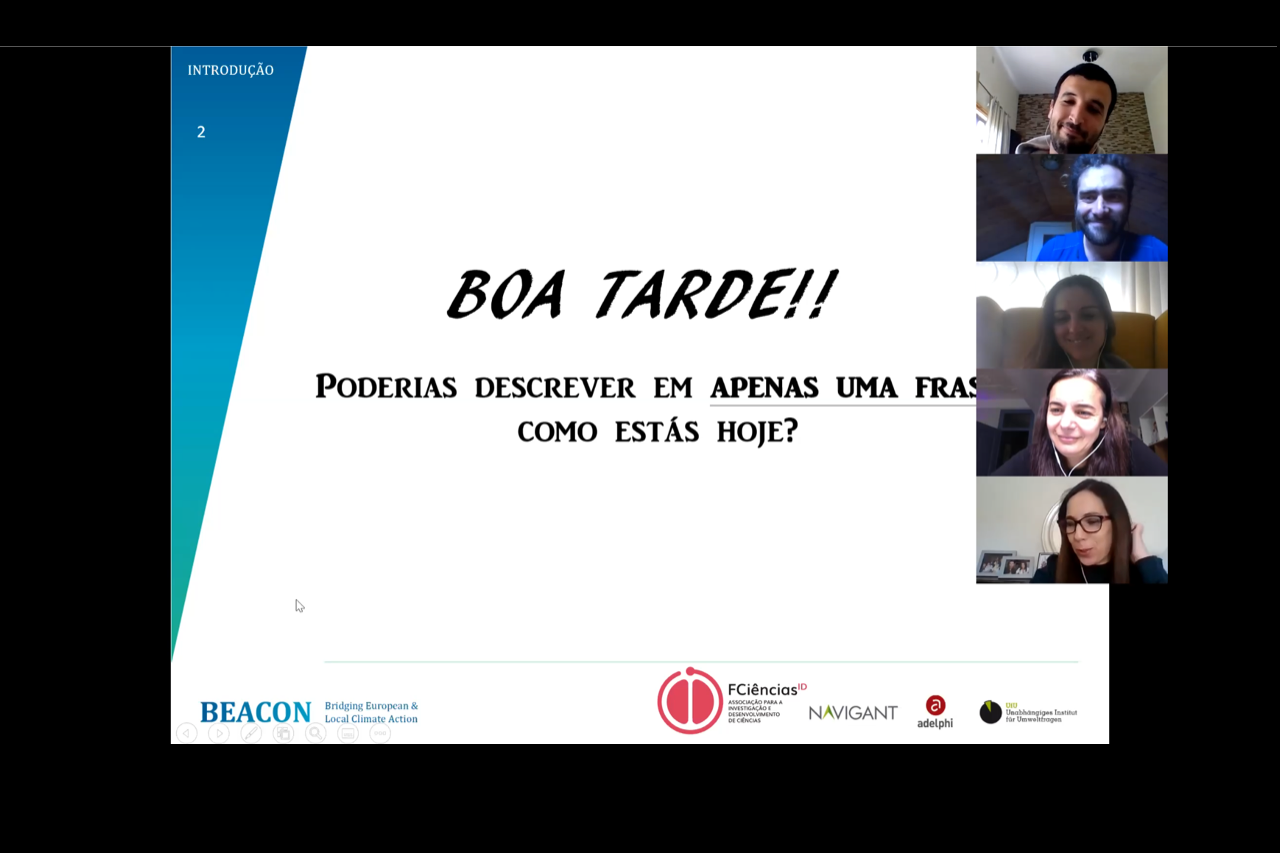BEACON Interview: No climate action advocate left behind
Matías M. García is a Galician, working in Lisbon, Portugal, as an action-research assistant in climate change mitigation. He belongs to the Portuguese BEACON Team, facilitating climate action and collaboration in municipalities. The interview was conducted by Polish Journalist Katarzyna Goszcz, who is part of the EUKI Project Central Eastern European Climate and Energy Policy Scholarship for Journalists.
We are all challenged by lockdowns and Covid-19 restrictions, how did you have to reorganize your work and project activities?
As we all know Covid-19 has been a real challenge for, I believe, most of the climate projects running in Europe. Nonetheless, it presented the opportunity to change our ways of working by necessity, which helps us be better prepared for the future. That’s why we decided to take up online modes of working. Not only are we able to continue the project, but it also allows us avoid travel. We implement the BEACON project through activities such as workshops where we have many participants from Portugal who have, as a result of COVID-19, decided to do all of the work online, so it has been a way to adapt ourselves to a new situation.
How did we do it? We assure everyone working with us that we can continue with these new ways of working. It is important in this transition to not leave anyone behind, to make sure that everyone is on board, that everyone is equipped to do the work, and to ensure that everyone is comfortable with the new technical solutions. That was the first step, when we were sure that everybody was OK with this, we held our first online activities. We also proceeded in part on the basis of learning by doing.
Could you point out some additional benefits of applying virtual solutions to the BEACON project?
Of course working online and in person are not the same. When working online you lose a little bit of a personal connection, but there are so many municipal employee in Portugal who would otherwise have to travel long distances to reach the office. With these virtual solutions we can save emissions resulting from such commutes. We have municipal representatives that travel nearly one hour to their offices by car every day. Imagine all of the associated emissions that could be saved….working online could also be also an opportunity for many to achieve a better work-life balance.
But most of all, working virtually is our chance to change. Climate action is about changing. We need to adapt all the time because new situations will arise whether we like it or not. Now we are facing the COVID-19 crisis, but soon we may face new climate-related crises. I am optimistic, but it is important to be prepared. I think it was Darwin who said that it is not the most intelligent who will survive, neither the strongest, but the one who is more responsive to change. We could extrapolate that to everything, including climate change projects; we have to keep an open-mind and positive attitude to continue our important climate work during this crisis.

You said, that we need to adapt to different circumstances, what opportunities do you see with COVID-19 restrictions for climate protection and also for the future of work?
I have to say it again – travelling. I have recognised that for me it was kind of weird to explain that I work for a climate change mitigation project but travel a lot around Europe. It is of course important to meet others, but let’s try to reduce the number of meetings if possible or try to do them differently. With the recovery from the pandemic, which we are already facing to some extent, we could connect these challenges: climate action and post COVID-19 recovery, for example, by promoting green jobs. There is a lot to do but it is important to always have in mind that things could change and it’s good to have a plan B. We cannot stop working on climate action and must keep going because climate change never sleeps.
How did your stakeholders respond to the new way of communication? I am sure they each have different technical knowledge and opportunities as well as different working structures and organisations.
As you said, we are collaborating with different people and they each have different backgrounds. When we talk about tech alternatives to in-person work, it is important that everybody is OK with it. And we need to pay more attention to those who are behind in this respect, offering more support, for example, by offering additional training. At the beginning some stakeholders showed resistance and were perhaps afraid. But at the end, everybody transitioned very well. Some need more attention and this is the same with the climate action processes. We must be careful to not leave anyone behind.
